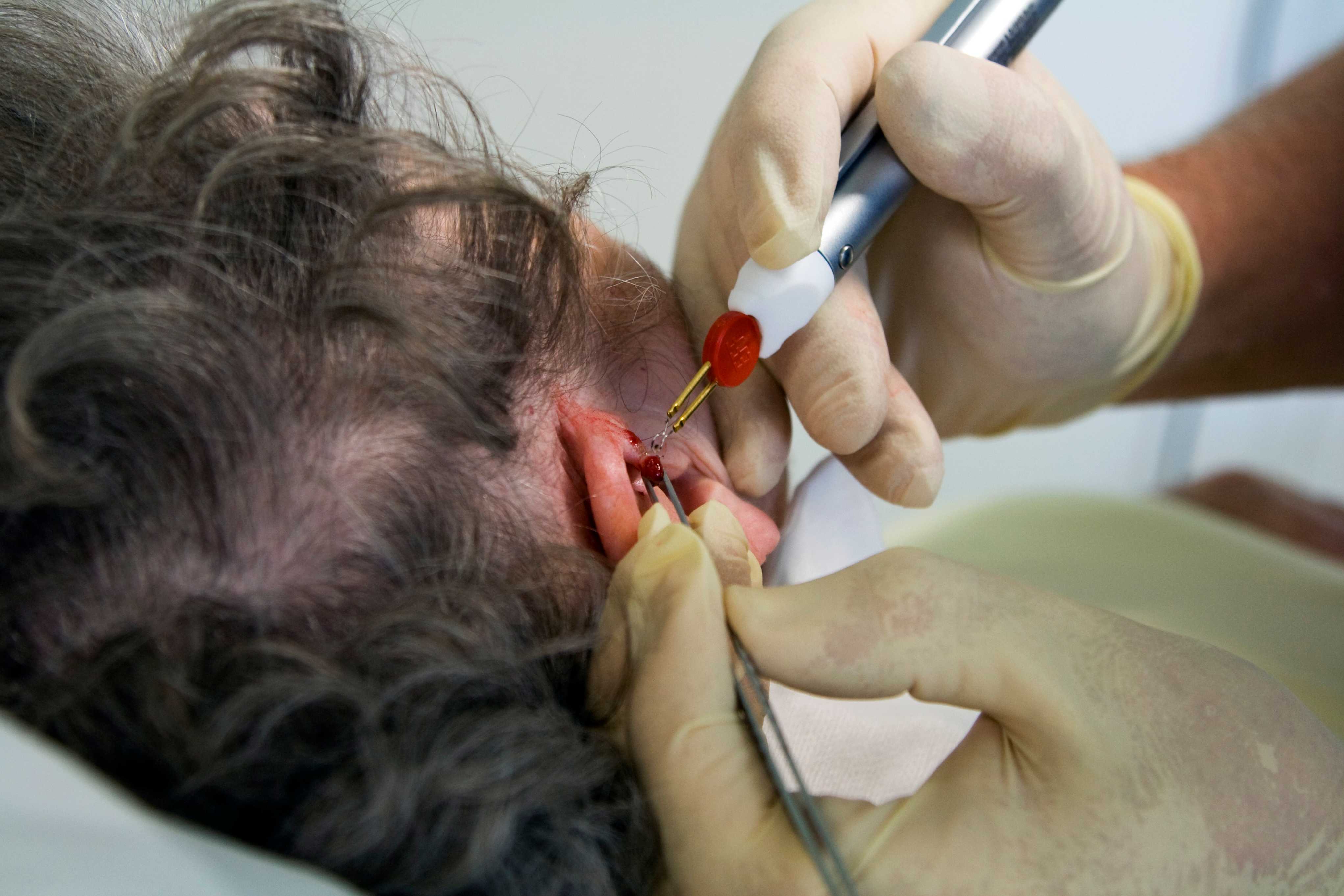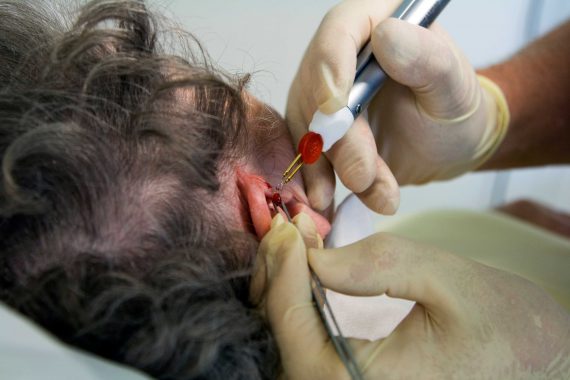1. Minor surgery can be a fun way of diversifying workload
Given the shortage of GPs and GP time in most practices minor surgery can be difficult to argue as being necessary in comparison to other primary care activities. However, minor surgical services in general practice are appreciated by patients, give cost effective service and have good results. They provide a service to patients that they may otherwise struggle to access through the NHS. They are, also, valued by clinicians providing the service. They are satisfying, allow for diversity workload and are fun! This results in greater interest to students and trainees and, I’d speculate, an advantage for recruitment and retention.
2. Minor surgery is funded by the enhanced service
Incisions and excisions are funded by the minor surgery enhanced service. This is paid at £86.70 per procedure and is for excision of lesions and toenails. The range of lesions is relatively narrow but includes epidermoid (sebaceous) cysts, lipomata, pyogenic granulomas and haemangiomas. Lesions must be significantly symptomatic or of diagnostic uncertainty and they must not be removed for purely cosmetic reasons. The enhanced service specification doesn’t include cryotherapy, curettage or cautery. Lesions thought to be malignant must be referred via cancer network services and are not included in the enhanced service. The specification is for minor surgery not for anything involving grafts or flaps.
3. Patients need to give proper consent
I’m aware that one indemnity provider has historically advised that verbal consent is adequate for minor surgery. This is not, however, the advice of the others. When it comes to consent, I think the term ‘minor’ surgery can be misleading for surgeons and patients alike. A complication such as a keloid scar, for example, can have significant ramifications for patients. In my view, therefore, consent should be verbal and written. The risks and benefits should be fully explained and alternatives to the proposed treatment (including no treatment) should be explored. It is well worth patients being provided with an information leaflet prior to surgery so they know what to expect and also including post-operative advice.
4. There are requirements for the room that you use for procedures
The room must be of at least 16m2 with a sink that has elbow-operated taps. There should be a couch on which CPR could be carried out if necessary, with room to move around it. There should be no extraneous equipment in the room. There should be an alarm call system and access to emergency equipment. Most modern consulting rooms will meet this specification. Perhaps the most difficult, and potentially expensive aspect is decent lighting. Most companies offer a ‘try before you buy’ scheme but if they don’t then it is worth asking – it took us ages to find our perfect light. You’ll also need a suitably qualified assistant present during minor surgical cases – this will usually be a nurse or HCA.

Seborrheic wart removal
5. You’ll need specific kit
The vast majority of services use disposable instruments. There should be availability of electrocautery or hyfrecation. A choice of dressings needs to be available and, depending on your generosity of spirit, some local anaesthetic. If you don’t have scrubs then disposable plastic aprons are necessary – especially for sebaceous cysts. Lots of histology pots are needed and you need to send histology of everything you take off (not usually toenails though). This is a medicolegal recommendation and a requirement of the DES.
6. A dedicated service will save time
In my opinion, the best way to run a minor surgery service is to have a dedicated session to it at least once per month. One benefit is that you and your assistant are focused for an entire session. General practice is fiendishly busy, so it doesn’t make sense to be preparing a room and getting equipment out for one or two cases. If it is the alternative is one or two cases at the end of a day or the beginning of a session, then the pressure of other work looms heavily overhead. Especially if you are not doing many procedures, it helps to have dedicated time. There are many time savings made by having a dedicated list. It is really important you are not disturbed during minor surgery and I think a dedicated list makes this less likely.
7. Training and audit are essential
The surgeon can be a GP from the practice, or the practice can employ or sub-contract a GP from outside the practice. They must have carried out an accredited minor surgery course either run by the RCGP or another accredited provider such as FourteenFish. They are recommended to retake this course every three years. They must be up to date with their basic life support and preferably not squeamish about toenails – it is amazing how common this is. They must be operating regularly, auditing their surgical outcomes and complication rates, and must be appraised on their surgical role. Audit is, therefore, a must. It is necessary to have a fool proof method for making sure you have received and acted upon histology reports – a system that does both of these is best. It is even better if run by your admin team, with you getting flagged for any problems. You need to audit histology, complications and satisfaction- a well-designed system will do all of this with ease. While on the subject of IT systems – it is well worth investing some time in putting together a template or standard op notes for your procedures.
8. Expect an initial outlay for specialist equipment
Your practice manager will be all over this. The costs to consider are:
- Kit – usually £7-£10 per procedure.
- Nursing time.
- Your time.
- Admin time.
- Postage if you are writing to patients with appointments or results.
The majority of minor operations can be done in 30 minutes initially but then, over time, reduced to a 20-minute slot. There will need to be an initial outlay for lighting and diathermy or hyfrecator equipment. You will also need to check your indemnity covers you, in particular regarding toenails. I know that some indemnity providers have clauses regarding this.
9. Minor surgery can open the door for starting other specialist services
Minor surgery can be the beginning of an interest in developing further services, dependent upon the need in your local area. Vasectomy services, carpal tunnel services, basal cell carcinoma services and dermatology services are all examples of how the role can be expanded. Any service would require further training and, not infrequently, a large amount of patience and perseverance – there is a fair amount of form-filling in order to gain accreditation, governance and award of a contract of service – the Association of Surgeons in Primary Care has some good resources for this. If you are interested in doing minor surgery but feel your practice doesn’t have enough minor surgery patients to make it worthwhile then it may be worth contacting other practices in your area and asking if they have the same issue. You could become being a travelling surgeon!
Dr Jim Wood is a GP Principal and GPwSI in basal cell carcinoma, carpal tunnel surgery and vasectomy in Devon. He is also a middle grade emergency department doctor and a dermatology surgeon at the Royal Devon and Exeter Hospital.
Pulse October survey
Take our July 2025 survey to potentially win £1.000 worth of tokens













